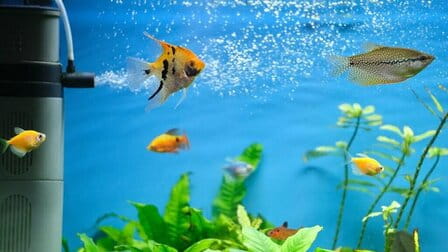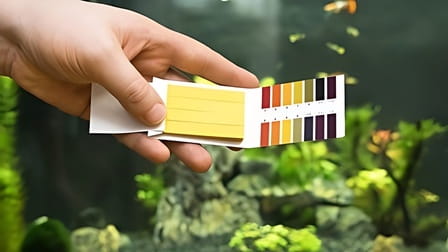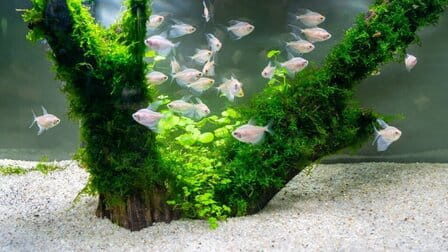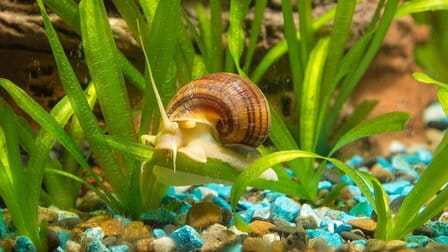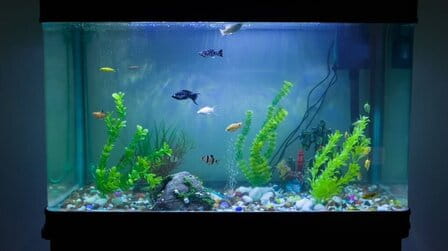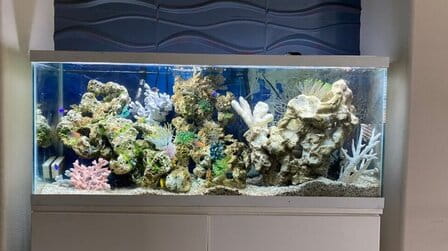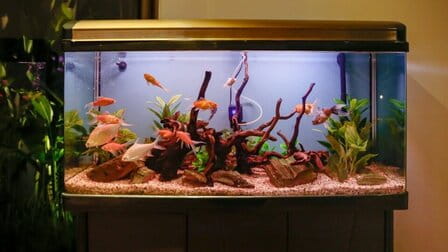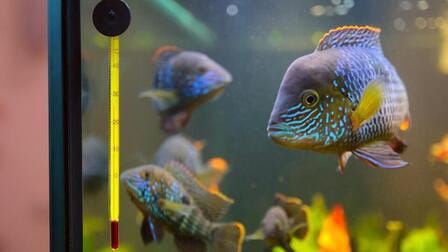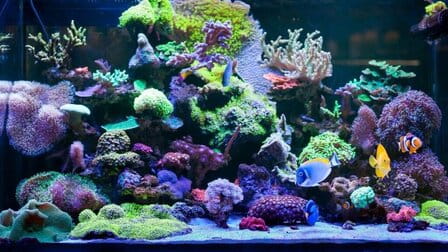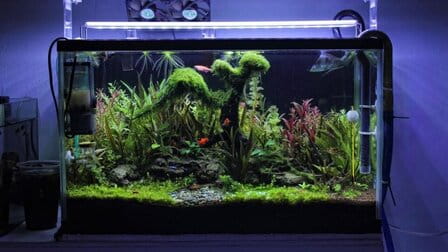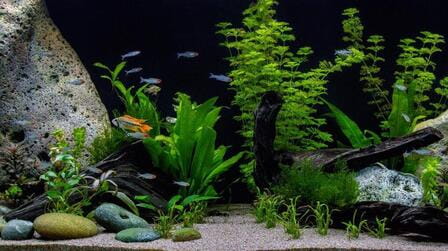Creating a thriving and balanced aquatic environment in your aquarium is a primary concern for any aquarist. The pH and alkalinity of your aquarium water play a crucial role in maintaining the health and well-being of your aquatic friends. Among these factors, KH (carbonate hardness) is one of the most critical, as it helps to stabilize the pH level in your aquarium. If you've found that your aquarium's KH is too low and you're looking for natural ways to raise it, you've come to the right place.
In this comprehensive guide, we'll explore what KH is, why it's essential for your aquarium, and various natural methods to raise it. You'll be well on your way to creating a stable and comfortable home for your fish and other aquatic creatures.
Understanding Carbonate Hardness (KH)
Before we dive into the methods of increasing KH naturally, it's essential to understand what carbonate hardness is and why it's crucial for your aquarium.
KH, or Carbonate Hardness, refers to the concentration of carbonates and bicarbonates in your aquarium water. It acts as a buffer, stabilizing the pH level by preventing rapid fluctuations. A stable pH level is essential because it helps your fish and other aquatic life to thrive and remain healthy.
When KH is too low, the pH of your aquarium water can become unstable and prone to rapid drops. This fluctuation can be stressful for your aquatic pets and even harmful in the long run. Fortunately, you can safely adjust pH levels while maintaining an appropriate KH level, which is vital for the well-being of your aquarium's inhabitants.
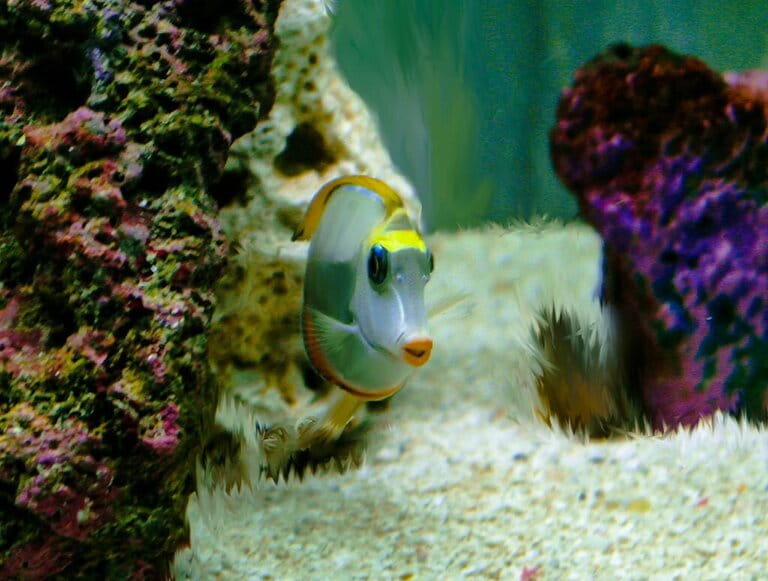
Why is Raising KH Important?
Raising KH is essential for the following reasons:
1. pH Stability: As mentioned earlier, a stable pH is vital for the health of your aquatic life. KH acts as a buffer, preventing sudden drops in pH that can be detrimental to your fish and other creatures.
2. Preventing pH Swings: KH helps prevent pH swings that can occur due to various factors, including the breakdown of organic matter, the respiration of aquatic life, and changes in water parameters.
3. Healthy Aquatic Life: Maintaining a stable pH ensures that your aquatic pets are not subjected to stress or health issues caused by fluctuating water conditions.
Natural Methods to Raise KH
Now, let's explore some natural and effective methods to raise KH in your aquarium:
1. Crushed Coral
Crushed coral is a popular choice among aquarists to raise KH naturally. It consists of calcium carbonate, which slowly dissolves in your aquarium water, increasing KH and maintaining stable pH levels. To use crushed coral, place it in a mesh bag or a media bag and position it in your aquarium's filter or sump. The water flow over the crushed coral will gradually increase your KH levels.

2. Limestone or Aragonite Substrate
Choosing a substrate composed of limestone or aragonite can naturally raise your KH over time. These substrates, like crushed coral, slowly release calcium carbonate into the water. As the water flows through the substrate, it gains KH, providing a natural buffer for your aquarium.

3. Baking Soda (Sodium Bicarbonate)
Baking soda is a readily available and cost-effective solution for raising KH. However, it should be used with caution. To use baking soda, dissolve it in water to create a concentrated solution. Then, add this solution to your aquarium in small increments, testing your KH regularly to monitor the increase. Be sure to make gradual changes to avoid sudden KH spikes.

4. Aeration
Proper aeration of your aquarium can help to naturally increase KH levels. Increasing the surface agitation and aeration in your tank enhances the exchange of carbon dioxide (CO2) with atmospheric oxygen. This helps to maintain a stable pH and, by extension, a balanced KH.

5. Live Aquatic Plants
Live aquatic plants can help maintain stable water conditions, including KH and pH levels. Through photosynthesis, aquatic plants consume carbon dioxide, which can help prevent pH drops in your tank. Consider adding live plants to your aquarium to contribute to a stable KH.

How to Safely Raise KH
When raising KH, it's essential to do so gradually and with caution. Quick and significant changes in KH can be stressful for your aquatic life. Here's a step-by-step guide on how to safely raise KH:
Step 1: Test Your Water Start by testing your aquarium water to determine the current KH level. This baseline measurement will help you monitor your progress.
Step 2: Choose Your Method Select one of the natural methods mentioned above – crushed coral, limestone or aragonite substrate, baking soda, aeration, or live aquatic plants.
Step 3: Apply the Chosen Method Apply your chosen method to your aquarium. Be sure to follow the recommended guidelines and add the chosen material or substance gradually.
Step 4: Monitor and Test Regularly test your water's KH level to ensure that it's increasing gradually. Avoid sudden or drastic changes.
Step 5: Adjust as Necessary If you're not achieving the desired KH level, make adjustments as needed. Be patient, as raising KH naturally may take time.
Conclusion: A Stable Home for Your Aquatic Friends
Maintaining the right KH level in your aquarium is essential for providing a stable and healthy environment for your aquatic pets. By understanding the significance of KH and employing natural methods to raise it, you're well on your way to creating an aquarium that promotes the well-being and vitality of your aquatic friends. Remember to make changes gradually and monitor your KH levels regularly to ensure they remain within the ideal range. With the right care, your aquarium will thrive, and your fish will flourish in their stable and comfortable home. Happy aquascaping!

